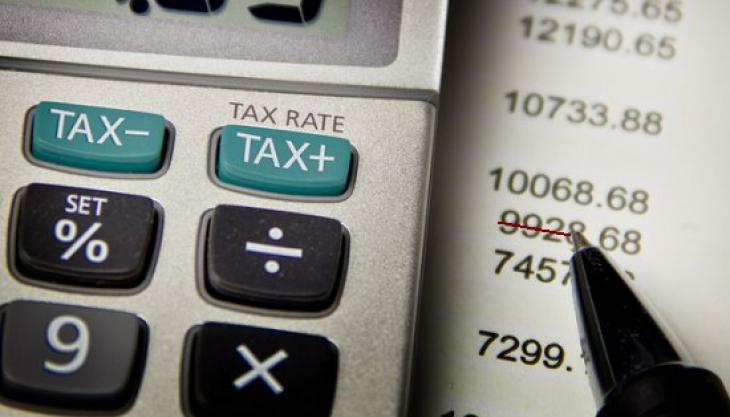Greensboro Consumers – Understanding Charged Off Debt Versus Discharged
Submitted by Rachel R on Wed, 10/18/2017 - 10:13am

Charged off versus discharged debt
Image Source: Flickr User Ken Teegardin
Understanding financial jargon when it comes to debt is important for Greensboro consumers. In a classic episode of the sitcom Seinfeld, Kramer told Jerry that big companies “just write it off” referring to broken items, bad debt, and loss. Jerry taunted Kramer that he didn’t know what a write-off meant and both men admitted they were clueless. This was a memorable funny scene but also reflected a lack of knowledge that many people have about how corporations operate. When a company “writes off” debt, it’s also called a “charge off.”
What that means is that the company has given up trying to collect the debt and took it off their books. In accounting, if a company knows that debt is bad, they can’t keep it on their books as an asset. Writing it off is a casual term for removing it from their accounting records. It’s deducted as an asset, and it becomes an expense under the byline of loss from uncollectible debt. From your end, you might be told your debt was charged off, but that doesn’t mean it disappeared. But even when a company writes off or charges off the debt, that doesn’t mean it can’t come back to haunt you.
Bad Debt Is Often Sold to Other Companies
Some companies are in the business of offering credit, and some are in the business of debt collection. For instance, if you have a credit card from your Greensboro credit union, they are in the business of banking, loans, and credit. Their primary business is not collecting debt. They will have a collections department in charge of collecting debt that is running late. If you miss a car payment or credit card payment, you will hear from the original creditor, such as your credit union. But if you continue to not make payments, at some point, the creditor will charge off or write off the debt and sell it.
At first, the bank, card issuer, or credit union may hire a collection agency to try and collect the debt. In this case, the creditor still owns the debt, and if the debt collector is successful, they get a fee or percentage of what they collect for getting you to pay. But if you still don’t pay, the creditor will move the debt off their books and go another route. One way that creditors make up for some of the loss of bad debt is to sell it for a reduced price to firms that specialize in debt collection. This way, they don’t take a total loss on the debt, and it becomes an asset to the company that bought it.
Statutes of Limitation
Greensboro consumers should understand that charged off debt doesn’t mean the debt is gone. It is still owed but perhaps not to the original creditor. Debt is still collectible by a collection agency, debt purchaser or creditor so long as the statute of limitation hasn’t expired. In North Carolina, consumer debt has a statute of limitation of three years. The three-year clock starts ticking on the date the debt went delinquent which is usually the date of your last payment. If you make a payment of any amount, the statute clock starts ticking again, so it’s wise to know the law and your status.
Once the statute of limitation expires, the debt still exists, but there are no legal “teeth” to collect it. This means the creditor, debt buyer, or debt collector cannot file a lawsuit against you to try and recover the debt. The statute of limitation expiration is one way for charged-off debt to become uncollectible. The debt will still reflect open on your credit report and will continue to impact your credit score until it falls off the report, usually seven years after the date of your last missed payment. When you choose Greensboro bankruptcy, though, debt moves from charged off to discharged.
Even debt that isn’t charged off maybe discharged. Debt that is discharged shows a zero balance on your credit report, is no longer collectible and will stop dragging your credit score down month after month. Discharged and charged off are two very different things and it pays to know the difference. To find out more about the benefits of bankruptcy, contact the Law Offices of John T. Orcutt. Call +1-833-627-0115 now for a free Greensboro bankruptcy consultation at one of our locations in Raleigh, Durham, Fayetteville, Wilson, Greensboro or Wilmington. Be sure to read reviews from our satisfied clients, so you know what to expect.
Debts Hurt! Got debt? Need help? Get started below!
Serving All of North Carolina
- Bankruptcy Attorneys Raleigh NC (North)
- Bankruptcy Attorney Fayetteville NC
- Bankruptcy Attorney Durham NC
- Bankruptcy Attorneys Wilson NC
- Bankruptcy Attorneys Greensboro NC
- Bankruptcy Attorneys Southport NC
- Bankruptcy Attorneys Wilmington NC
Bankruptcy Attorneys Raleigh NC (North)
6616 Six Forks Rd #203 Raleigh, NC 27615 North Carolina
Tel: (919) 847-9750

Bankruptcy Attorney Fayetteville NC
2711 Breezewood Ave Fayetteville, NC 28303 North Carolina
Tel: (910) 323-2972

Bankruptcy Attorney Durham NC
1738 Hillandale Rd Suite D Durham, NC 27705 North Carolina
Tel: (919) 286-1695


Bankruptcy Attorneys Greensboro NC
2100 W Cornwallis Dr. STE O Greensboro, NC 27408 North Carolina
Tel: (336) 542-5993

Bankruptcy Attorneys Southport NC
116 N Howe St. Suite A Southport, NC 28461 North Carolina
Tel: (910) 218-8682

Bankruptcy Attorneys Wilmington NC
116 N. Howe Street, Suite A Southport, NC 28461 North Carolina
Tel: (910) 447-2987
